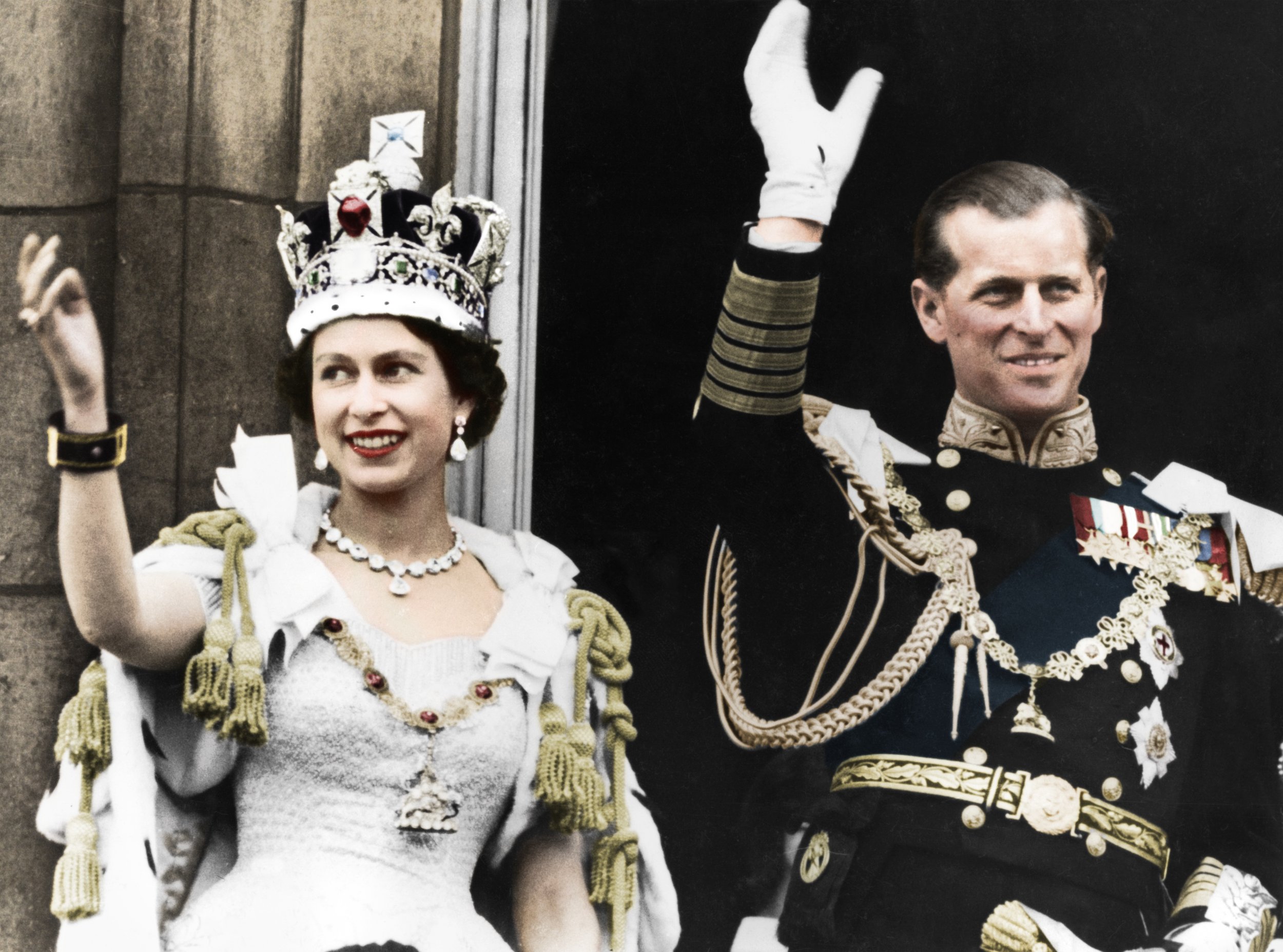
Today marks 66 years since Elizabeth II was crowned Queen of the U.K., Canada, Australia, South Africa, New Zealand, Pakistan, and Ceylon (now Sri Lanka).
Members of the public hosted street parties and crowded around black and white televisions to celebrate the historic occasion. Here are some unusual facts you might know about the event.
1. Elizabeth II had been queen for more than a year before her coronation took place
Queen Elizabeth's coronation took place on June 2, 1953. However, she was proclaimed queen following the death of her father on February 6, 1952. It's traditional for British monarchs to hold off on official celebrations of their ascension out of respect for the dead.
Coronations also take an extraordinary amount of preparation, so an extended delay is very useful for organizers.
According to Royal Central, the specific date was picked on the promise of good weather. Unfortunately for the Brits celebrating at street parties, it still rained on the day.
2. One of the horses that led the Queen's carriage was called Eisenhower
The Queen rode to Westminster Abbey with Prince Phillip in the Gold State Coach—a 16th-century gilded carriage drawn by eight gray horses.
The queen chose the names of the horses herself, and most—including Eisenhower, Tedder and McCreery—were named for famous service chiefs, according to Country Life magazine. Disturbingly, staff reportedly called one "Chirgwin" after the late British comedian G. H. Chirgwin, known for his blackface minstrel act.
The Queen recently described the journey to Westminster Abbey as "horrible" in a documentary about her coronation. As Sky noted last year, she explained the coach was "not meant for traveling in at all."
3. News that explorers had conquered Everest was shared the same day. But the Queen found out the night before
If excitement surrounding the coronation wasn't enough, Brits discovered on June 2 that New Zealand's Sir Edmund Hillary and Nepalese mountaineer Tenzing Norgay had reached the summit of Everest—the world's tallest mountain above sea level—four days earlier.
A runner at base camp scrambled to deliver the British expedition's news to a radio post at Namche Bazar in Nepal. From there, it was flashed to the British Embassy.
The Queen heard the news the evening before, according to Reuters, who reported that the climbers "had succeeded in their plan to give her a world-shaking coronation present."
4. The coronation was a highly religious affair
Since the time of Henry VIII, all English monarchs—bar Mary I and James II—have been head of the Protestant Church of England. Henry VIII separated the church from Rome in 1534, sparking broad ramifications that are still felt today.
As "Defender of the Faith and Supreme Governor of the Church of England," Elizabeth II vowed at her coronation to protect the institution. She responded "I will" when the Archbishop of Canterbury asked: "Will you to the utmost of your power maintain in the United Kingdom the Protestant Reformed Religion established by law? Will you maintain and preserve inviolably the settlement of the Church of England, and the doctrine, worship, discipline, and government thereof, as by law established in England?"
In practice, however, the Queen's role in the institution is mostly ceremonial.
5. The coronation spawned a sandwich filling still eaten today
Le Cordon Bleu-trained British chefs Rosemary Hume and Constance Spry created a coronation-themed dish for members of the public to cook at home in celebration of the event.
Featuring chicken, curry powder and mayonnaise, the bright yellow concoction is still known today as "coronation chicken." It remains a popular sandwich filling and salad ingredient.
A similar recipe for "jubilee chicken" was devised for the Queen's golden jubilee in 2002. According to the royal family's official website, the dish was "tasted and approved" by Elizabeth II herself.
Uncommon Knowledge
Newsweek is committed to challenging conventional wisdom and finding connections in the search for common ground.
Newsweek is committed to challenging conventional wisdom and finding connections in the search for common ground.
About the writer
Katherine Hignett is a reporter based in London. She currently covers current affairs, health and science. Prior to joining Newsweek ... Read more
To read how Newsweek uses AI as a newsroom tool, Click here.








